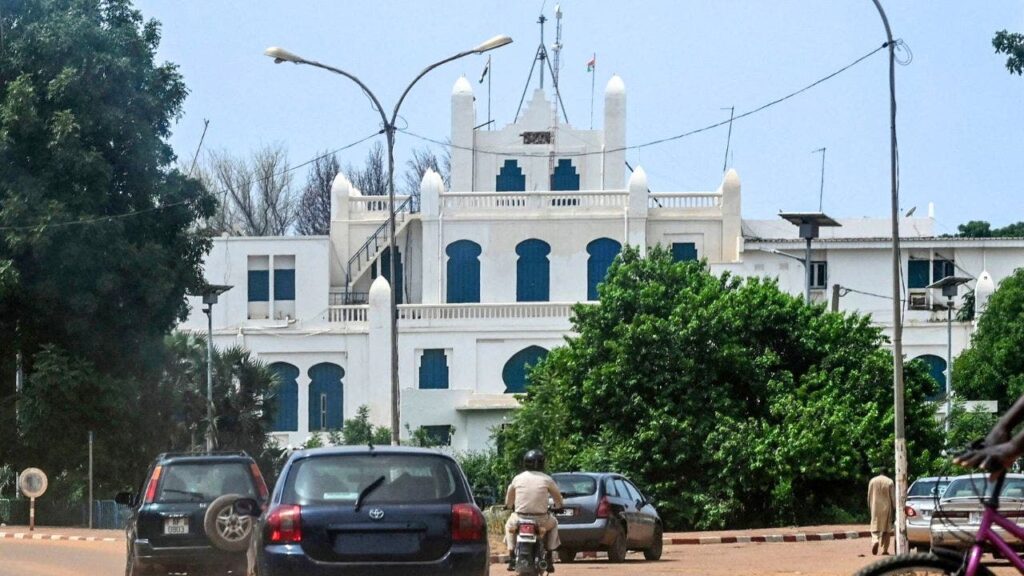A significant security incident has unfolded in Niger, where an American Christian missionary has been kidnapped near the presidential palace in Niamey. Security experts stress the urgency of the situation, emphasizing that the first 48 hours following the abduction are critical for the possibility of a successful recovery. The missionary, affiliated with an evangelical group, may be held in territory controlled by an ISIS offshoot, complicating the rescue efforts. As U.S. officials work closely with local authorities, the focus remains on establishing communication and assessing the risks involved in potential rescue operations.
| Article Subheadings |
|---|
| 1) The Kidnapping Incident Timeline |
| 2) Insights from Security Experts |
| 3) The Role of U.S. Authorities |
| 4) Challenges in the Region |
| 5) The Road Ahead |
The Kidnapping Incident Timeline
The kidnapping occurred in Niamey, the capital of Niger, just a short distance from the presidential palace, approximately 100 yards away. Reports indicate that it took place in broad daylight, raising concerns over security in the region following a military coup that ousted President Mohamed Bazoum. The incident occurred on a Wednesday, heightening the urgency given the potential motivations behind the abduction.
Sources suggest that the missionary, affiliated with the evangelical organization Serving in Mission, was taken towards areas populated by extremist factions, including an ISIS offshoot. This development not only complicates the rescue efforts but also poses a risk to the safety of the abductor and their hostages. Given the complex nature of such kidnappings, the aftermath often involves a flurry of negotiations and shifting dynamics.
Insights from Security Experts
Experts in security and crisis management highlight the critical nature of the first 48 hours post-abduction. Bryan Stern, founder of Grey Bull Rescue, emphasized in an interview that the initial hours significantly influence the outcome of hostage situations. He explained that in organized kidnappings, the parties who initially kidnap the individual often differ from those who subsequently hold the individual, which can drastically alter the recovery process.
According to Stern, many kidnappers tend to trade hostages among various groups, complicating recovery efforts. “Every passing hour diminishes the likelihood of a successful recovery,” he stated. As time progresses and information becomes scarce, the task of ascertaining what the captors want turns increasingly challenging.
The Role of U.S. Authorities
U.S. officials are actively monitoring the situation, having confirmed awareness of the kidnapping. A spokesperson from the State Department indicated that the safety of the abducted American is a priority for the administration. The U.S. Embassy in Niger has taken significant steps to ensure the safety of its personnel by limiting movement to armored vehicles and restricting visits to public spaces like open-air markets.
Local authorities are collaborating closely with U.S. representatives, exchanging information to formulate a response strategy. However, the embassy officials have not disclosed whether any group has claimed responsibility for the kidnapping or issued specific demands. Such details are vital for analysts trying to piece together the motivations and potential next steps in the case.
Challenges in the Region
The security landscape in Niger is particularly volatile. Following the military coup earlier in 2023, the socio-political environment has dramatically shifted. Militants operate alongside criminal factions and various rogue elements, making the situation increasingly dangerous. This complexity adds to the already high-stakes nature of the kidnapping.
Stern characterized the operational environment in the region as “31 flavors,” mentioning the mix of influences ranging from Russian proxies to local gangs and ideological extremists. This makes the landscape not only multifaceted but also treacherous for any potential interventions. It serves to highlight the necessity of careful deliberations surrounding any rescue operations.
The Road Ahead
As the situation evolves, the focus remains on determining proof of life and establishing potential communication with the kidnappers. U.S. special operations may be monitoring the environment for possible intervention, but experts warn that such rescue attempts carry significant risks. “Executing a rescue operation is fraught with danger and is the most intricate task special operations units undertake,” Stern explained.
Amidst these efforts, there’s a palpable urgency for proof of life, as it can significantly inform the strategies available to negotiators. Failure to establish communication could lead to dire consequences, making every hour count in this unfolding drama.
| No. | Key Points |
|---|---|
| 1 | An American missionary was kidnapped in Niamey, Niger, near the presidential palace. |
| 2 | The first 48 hours are crucial for the success of recovery efforts according to security experts. |
| 3 | U.S. officials prioritize the safety of the kidnapped individual and are collaborating with local authorities. |
| 4 | The unstable environment following the recent coup complicates the situation. |
| 5 | Experts caution that a rescue operation carries significant risks and complexities. |
Summary
The kidnapping of an American missionary in Niger underscores the precarious security situation in a nation still grappling with the ramifications of a recent military coup. As U.S. officials work with local authorities to recover the individual, the complexities presented by a multifaceted crisis underscore the urgency for a cohesive and strategic response. The situation remains fluid as the first critical hours pass by, emphasizing the need for vigilance and swift action.
Frequently Asked Questions
Question: Who is the kidnapped American missionary?
The kidnapped individual is a missionary affiliated with the evangelical group Serving in Mission.
Question: Why are the first 48 hours critical in a kidnapping situation?
Experts indicate that the likelihood of recovery diminishes with each passing hour, making early action crucial.
Question: What complexities arise with hostage negotiations in this case?
A mix of motivations from various groups involved complicates traditional negotiation approaches, leading to uncertainty.


